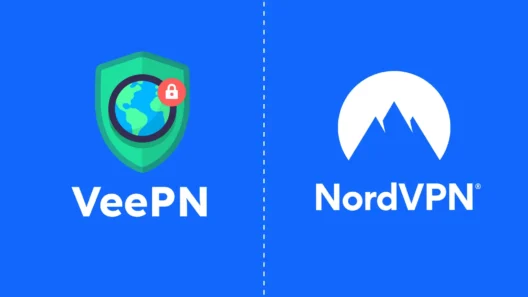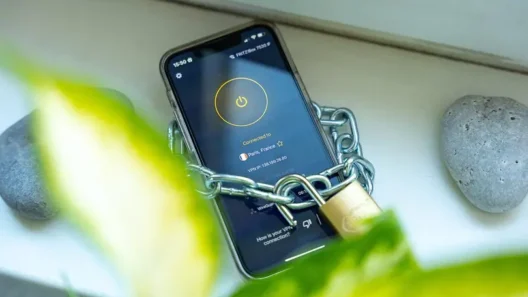They raised us, spoiled us, gave us cookies when our parents said no—and now it’s our turn to protect them.
Scams targeting older adults aren’t just some fringe threat anymore. They’re a full-blown epidemic. From fake “grandkids” begging for bail money to scammers posing as tech support, these fraudsters know exactly how to play on trust, emotion, and that old-school politeness many seniors still hold dear.
If you’ve got aging parents, grandparents, or even neighbors you care about, it’s time to step up. This guide is here to help you spot the traps, start the right conversations, and put real protections in place—without making your loved ones feel like they’ve lost their independence.
Why Scammers Target Seniors (And Why It Works)
Before we get into how to stop them, it helps to understand why older adults are such common targets.
- They often have assets – retirement savings, paid-off homes, good credit.
- They may not be as tech-savvy – making phishing emails, fake websites, and pop-ups more effective.
- They’re polite and trusting – less likely to hang up on a “bank” or challenge authority figures.
- They’re isolated – which makes them more vulnerable to romance scams or fake “emergency” calls.
- They feel shame – many victims don’t tell anyone what happened, allowing scams to continue undetected.
Scammers know all this. And they exploit it mercilessly.
Red Flags: How to Spot a Scam Before It Happens

Here’s what to teach your loved ones to watch out for:
1. Urgent requests for money
“Your grandson’s in jail and needs bail right now.” Sound familiar? That’s the classic grandparent scam.
2. Strange payment methods
Gift cards. Wire transfers. Crypto. These are the go-to payment methods for scammers because they’re hard to trace—and impossible to reverse.
3. Scare tactics
“Your Social Security number has been suspended.” “You owe back taxes.” If it sounds terrifying and demands instant action—it’s likely a scam.
4. Requests to keep it secret
“If anyone asks, tell them you’re just buying something.” Scammers know others will catch on, so they often ask seniors not to tell anyone.
5. Too-good-to-be-true offers
“Congratulations! You’ve won $10,000!” But first, you need to pay a “processing fee.” Spoiler alert: there’s no prize.
Step-by-Step: How to Protect Your Loved Ones

Protecting older family members doesn’t mean hovering or treating them like children. It means setting up smart safeguards and having open conversations. Here’s how to do both.
🧠 1. Start the conversation early
Don’t wait until something bad happens. Use a real news story or this article to break the ice. Try:
“Hey, I read about someone who got scammed by someone pretending to be their grandkid. Can we chat about how to avoid stuff like that?”
Keep it casual, not accusatory.
🔧 2. Lock down their tech
Set up the basics:
- Strong passwords + two-factor authentication (use a password manager if needed)
- Spam filters in email
- Block unknown calls and texts
- Automatic updates for apps and antivirus
Bonus: Install a VPN like NordVPN with Threat Protection on their devices. It hides browsing activity, blocks shady websites, and protects against phishing and malware—even if they click the wrong thing.
📉 3. Monitor finances together
Help them:
- Review bank statements monthly
- Set up alerts for large withdrawals
- Check credit reports at least once a year
Or, make it easy and use a tool like NordProtect, which includes real-time credit monitoring, alerts for suspicious activity, and even up to $1 million in identity theft recovery coverage.
It’s like having a digital watchdog looking out for them 24/7.
👥 4. Create a trusted contact list
Encourage banks, brokers, and online services to add a “trusted contact”—a family member who can be notified if something fishy is going on.
You can also use this approach to build a small support circle: you, a sibling, maybe a tech-savvy grandkid, all quietly keeping watch without micromanaging.
🚨 5. Know what to do if they fall for it
Scammers are good. Even smart people fall victim. If it happens:
- Freeze their accounts fast
- Call their bank, credit card company, and credit bureaus
- Save all emails, numbers, screenshots
- Report it to the FTC, local police, or the National Elder Fraud Hotline
- Help them secure passwords and emails
- Encourage them to talk about it—shame feeds silence, silence helps scammers
And yes, NordProtect can help here too—with support specialists who walk them through recovery step by step.
Common Scams That Target Older Adults (And How They Work)
Now that you know how to spot and prevent fraud, here’s what your loved ones are actually up against. These aren’t just made-up horror stories—every single one of these scams has happened thousands of times.
🧑💻 Tech Support Scams
They get a pop-up: “Your computer is infected! Call Microsoft now!”
Once on the phone, the “technician” walks them through giving remote access—then steals data, installs malware, or demands payment to “fix” the issue.
✅ What to say:
“If you get a pop-up or call saying something’s wrong, hang up. Real tech support never contacts you like that.”
👮 Government Impersonation
A robocall says it’s the IRS, FBI, or Social Security Office, and there’s a warrant or fine unless they pay right now.
Scammers use fear to override logic.
✅ What to say:
“Government agencies never threaten or demand payment by phone. Ever.”
❤️ Romance Scams
Someone builds a relationship online—often through Facebook, dating sites, or even games—and then asks for help with “emergencies” like medical bills, visas, or family tragedy.
These scams are emotionally devastating.
✅ What to say:
“If someone you’ve never met asks for money—even if they seem sweet and loving—talk to me first.”
🧓 Grandparent Scams
A scammer says: “Grandma, I’m in trouble—don’t tell mom, but I need money for bail!”
The voice may even sound similar. AI tools can mimic real voices now.
✅ What to say:
“Always double-check by calling their actual number. Never act on a single phone call.”
💰 Investment & Lottery Scams
These scams promise high returns, sweepstakes wins, or prizes—but require an upfront “fee” to unlock the reward.
It’s bait and switch, pure and simple.
✅ What to say:
“If someone says you’ve won money or can get rich quick, they should be paying you—not the other way around.”
Extra Layer of Protection: How NordProtect Helps After a Scam
Even with all the right precautions, mistakes happen. That’s where NordProtect comes in—not just to prevent fraud, but to help recover fast if something goes wrong.
Here’s what it offers:
🔍 Real-Time Monitoring
- Tracks credit reports, financial changes, and dark web leaks.
- Sends instant alerts if your personal info appears in risky places.
💵 Identity Theft Insurance
- Up to $1 million in coverage for recovery costs (legal fees, lost wages, document replacement, etc.)
🧑💼 Personal Recovery Specialists
- Real humans who help your loved ones cancel cards, freeze credit, file reports, and fix the damage.
💻 Cybersecurity Included
- Monitors for criminal activity in your name.
- Covers cyber extortion up to $100,000.
- Includes smart alerts for new accounts or suspicious activity.
Want peace of mind for your family?
👉 Try NordProtect – Plans from $7.49/month
Final Tips: Keep the Conversation Open
Fraud prevention isn’t a one-time fix. It’s ongoing. Here’s how to keep your loved ones safe long-term:
- Chat about scams regularly, especially after holidays or big events (scammers love timing).
- Be gentle. No judgment. Just support.
- Share news stories or examples to keep it real.
- Help them feel empowered—not ashamed.
- Check in on tech and finances now and then.
Because protecting them doesn’t mean controlling them. It means making sure no scammer gets between them and their hard-earned security.
You’re the First Line of Defense
A simple chat today could save someone you love from months of stress, financial ruin, or worse.
So go ahead—bring up that “weird email” at dinner. Offer to help set up some basic protections. And consider using services like NordProtect to handle the rest in the background.
They spent decades keeping you safe.
Now it’s your turn.
FAQ
What are the most common scams targeting seniors?
The most common scams include tech support fraud, government impersonation, romance scams, grandparent emergencies, and fake investment or lottery schemes. These often use urgency, fear, or emotional manipulation to trick seniors into sending money or sharing sensitive data.
How can I talk to my elderly parent about scams without offending them?
Start with empathy. Use a real news story or article as an entry point, and frame it as a way to protect—not control—them. Avoid sounding accusatory. Make it a team effort: “Let’s set this up together, just in case.”
What tools can help protect seniors from online fraud?
Password managers, call blockers, and updated antivirus software are great starts. For more complete protection, services like NordProtect offer real-time credit monitoring, dark web alerts, and identity theft insurance up to $1 million—perfect for families looking for peace of mind.
What should I do if my elderly relative falls for a scam?
Act fast: contact their bank, freeze their credit, change passwords, and gather all evidence (emails, numbers, payment receipts). Report the scam to the FTC and local authorities. If they use a service like NordProtect, connect with their recovery specialist for guided help.














